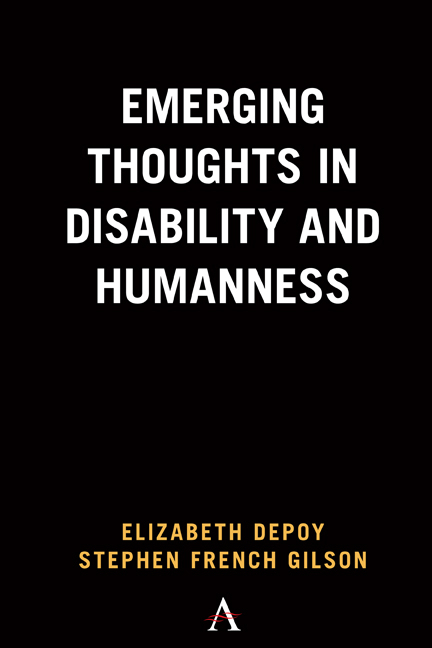Chapter 2 - Bedrock Constructs
Published online by Cambridge University Press: 13 May 2022
Summary
In this chapter, we provide a smidge more introductory material in our preparatory homework for the reader. We begin with legitimacy, given its starring role in this project. In this context, legitimacy refers to questions about what it means to be a legitimate human, its inferior or its opposite, and interrogate the terrain of who is accepted as a full member in the humanness club: when and when not; why and why not; how and how not. There is no dearth of opinions, each informed by different fields of thinking. A simple biological definition of human, for example, qualifies one as belonging simply by exhibiting the human form, defined by Wittgenstein as legitimacy by virtue of being conceived by human parents (Hanfling, 2002). Of course, there is really nothing uncomplicated about this definition given the many facets of timing, body composition, distinction from species nonexamples, and even technological additions to the organic corpus. In this book we delimit our definition to serve the analysis of the role of impairment and the multidimensional collage of responses to it in crafting humanness.
Enter the application of legitimacy theories to analyze authentic humanness and its nonexamples. Legitimacy is the feature story in Chapter 4, and acts as a trailer here to entice the reader. At the very least, legitimacy thinking lays bare the essential factors that bestow acceptance, membership, respect, and their nonexamples within the context of diverse social systems and arrangements. Applied to understanding the role of impairment in determining who fully or partially passes the humanness test, or who fails it altogether, legitimacy foregrounds the body, behavior, and appearance as the loci of judged explanations and construction of desirability (DePoy and Gilson, 2011).
Legitimacy has both a long history and wide girth. Longitudinally, legitimacy can be traced as far back as the writings of the ancient Greek historian, Thucydides, in 423 BCE, in which questions were posed and answered about the unfolding and moral correctness of power and its acceptance by subordinates. Although legitimacy theory originally had its roots in political theory, it became engorged and expanded its analytic reach way beyond its initial perimeter to fields as disparate as rhetoric, visual culture, and even accounting (Puyou and Quatronne, 2018; Luthardt, 2011).
- Type
- Chapter
- Information
- Emerging Thoughts in Disability and Humanness , pp. 9 - 16Publisher: Anthem PressPrint publication year: 2022



